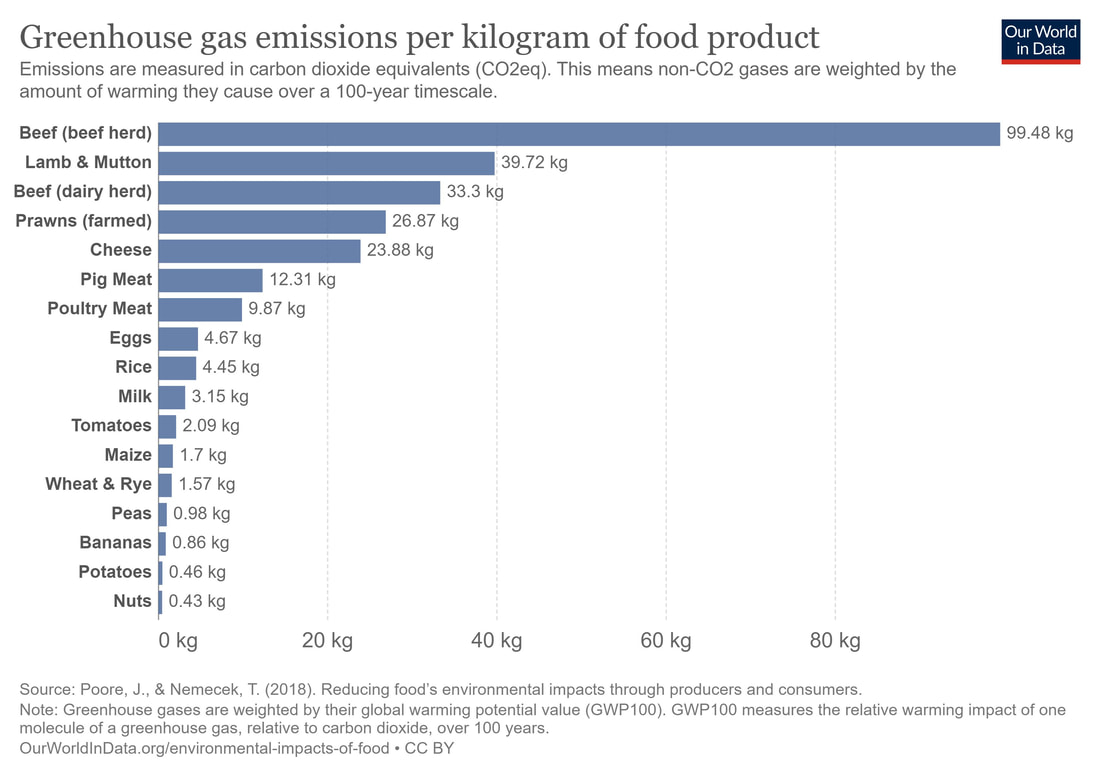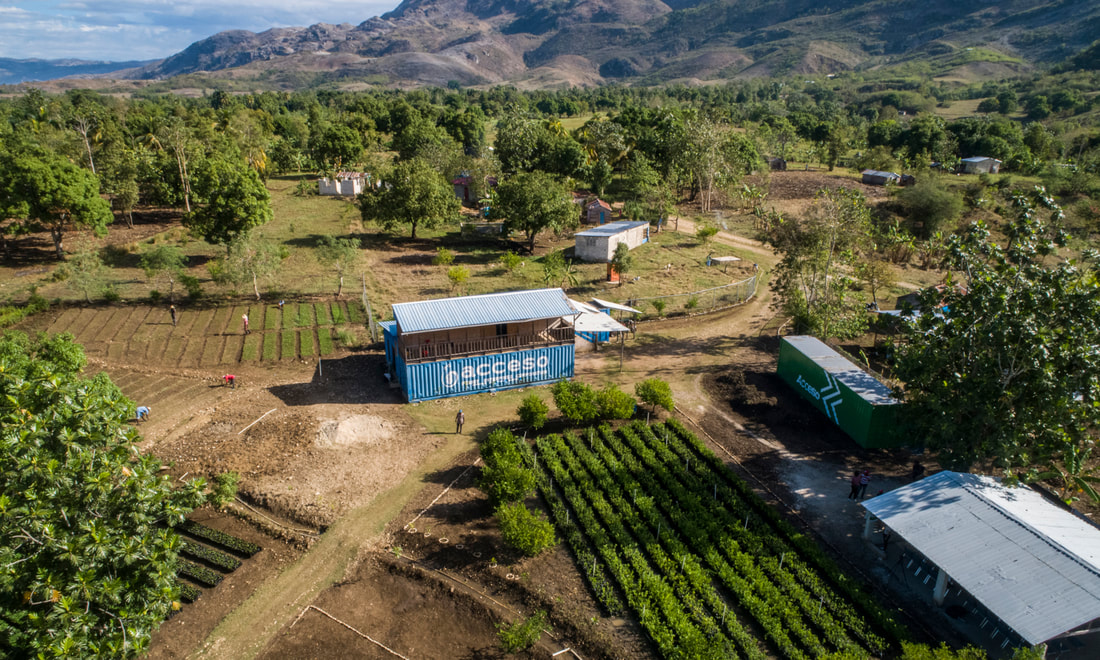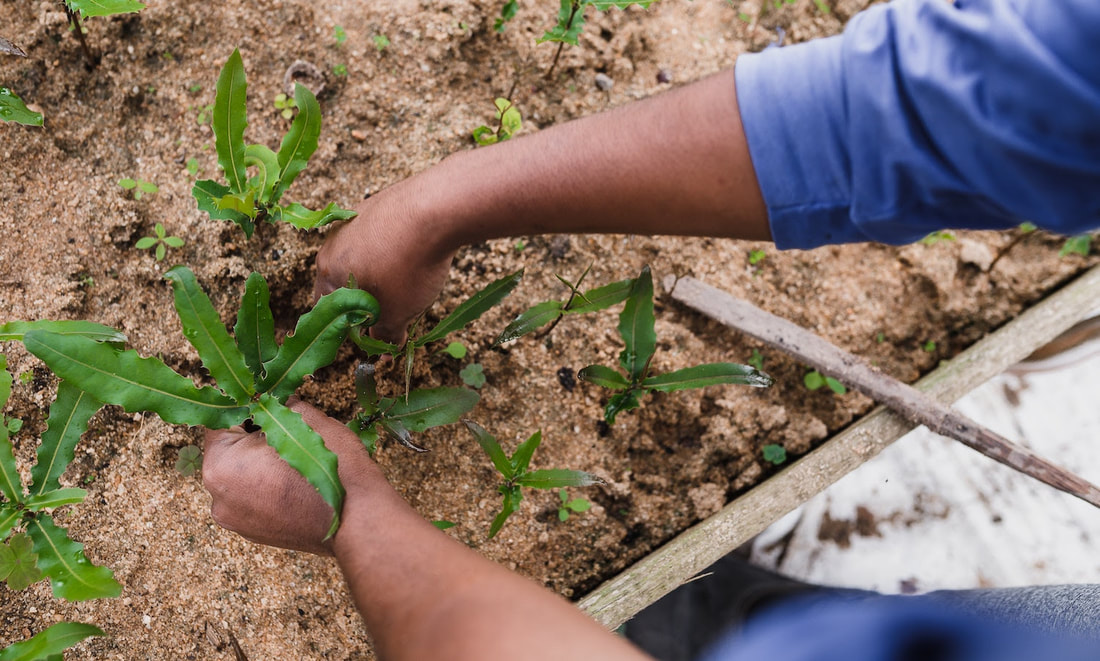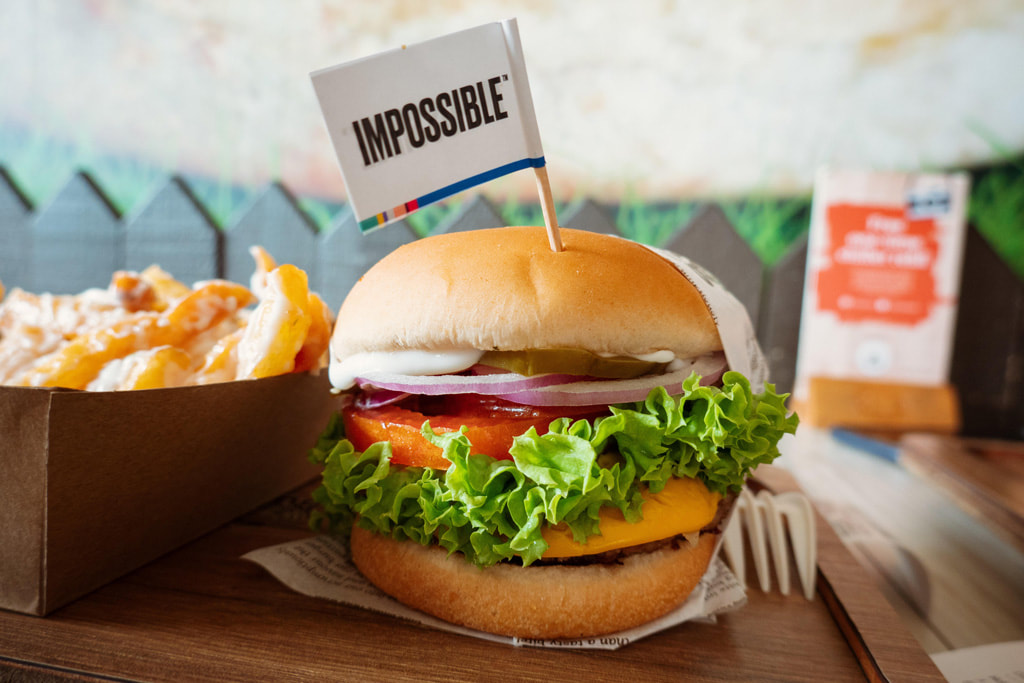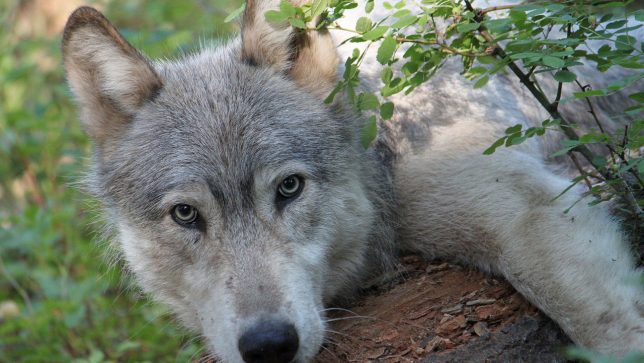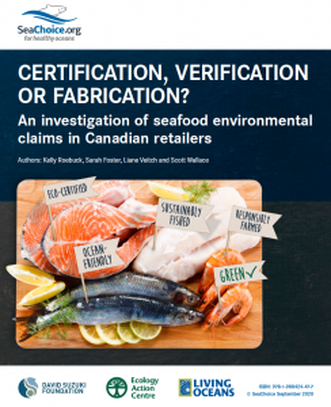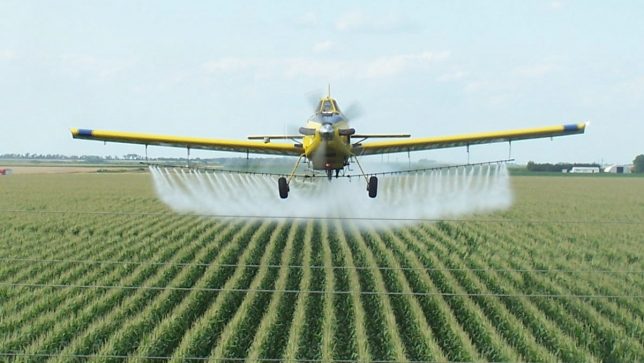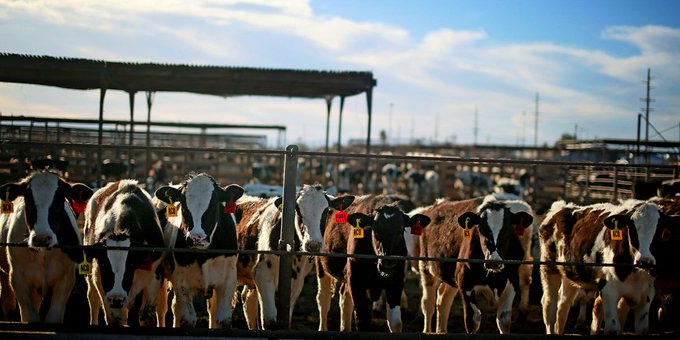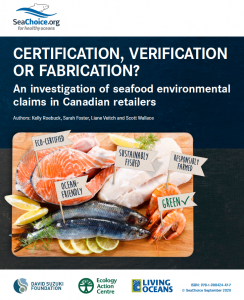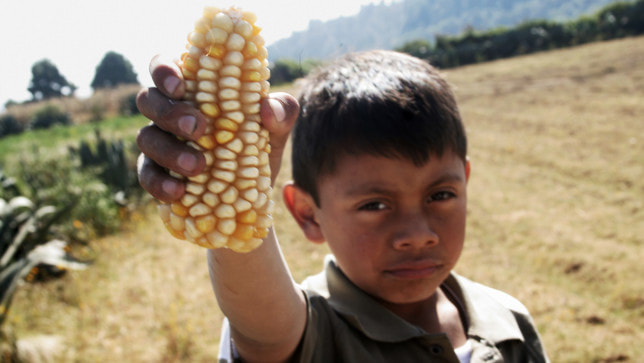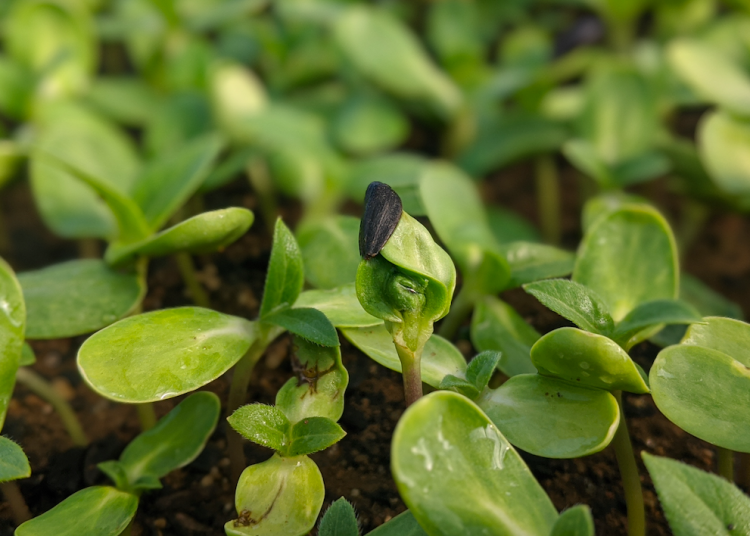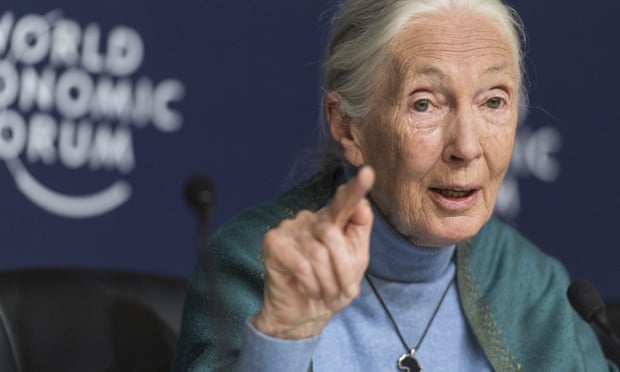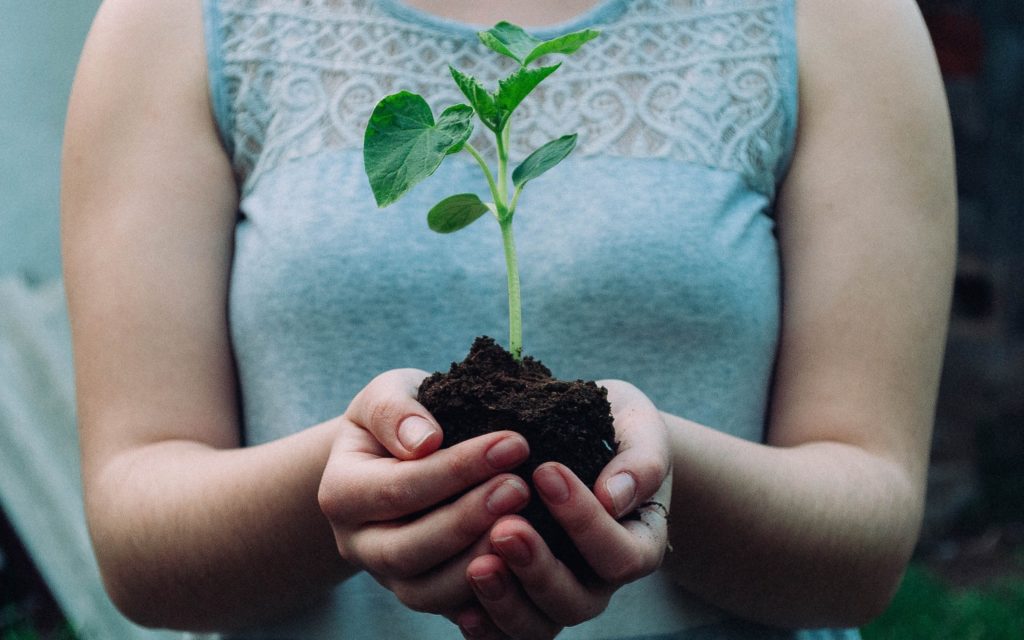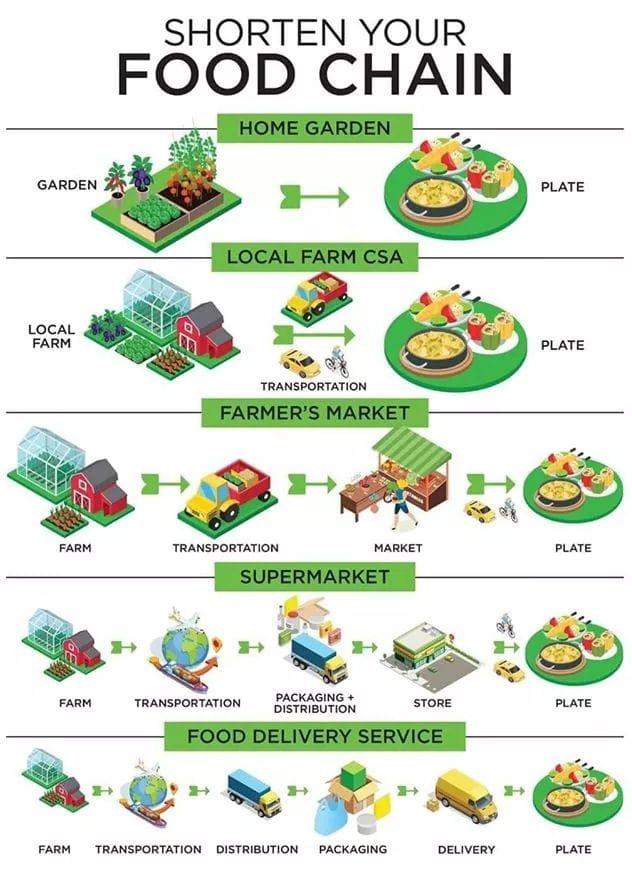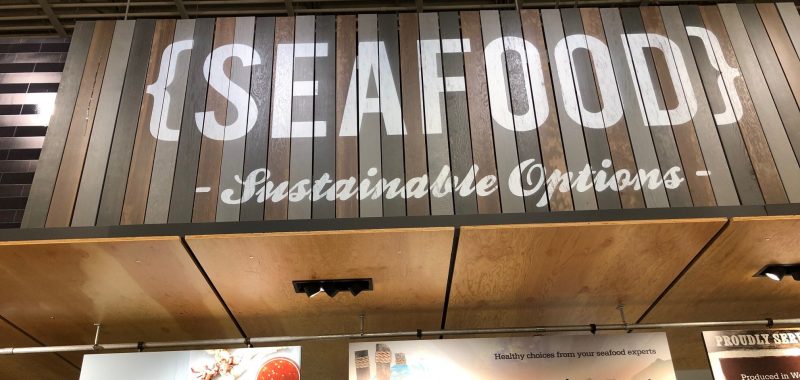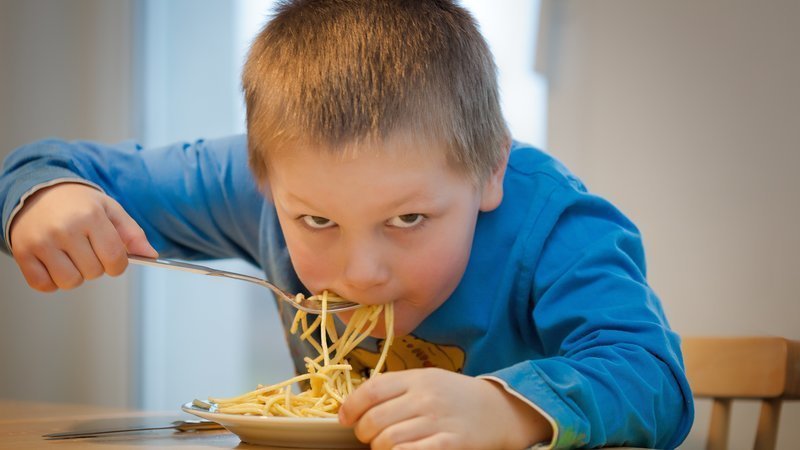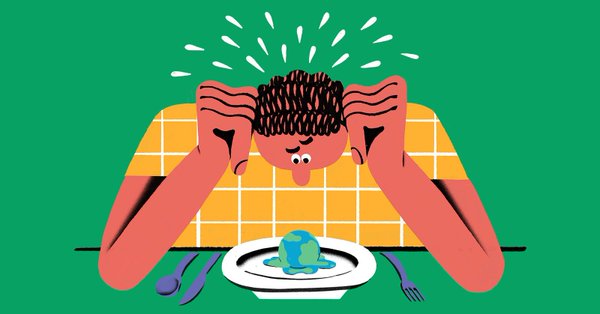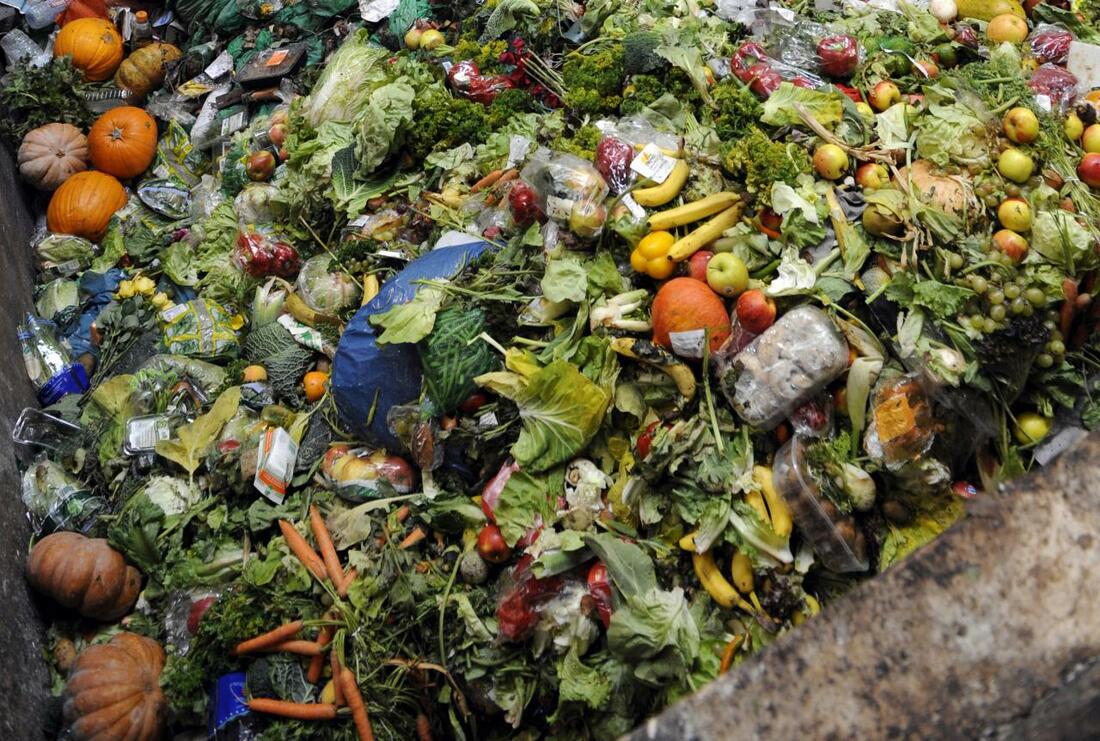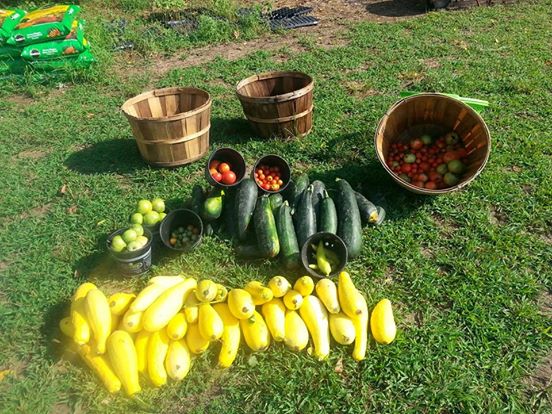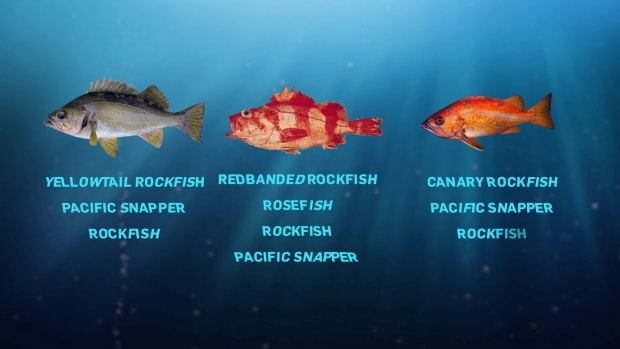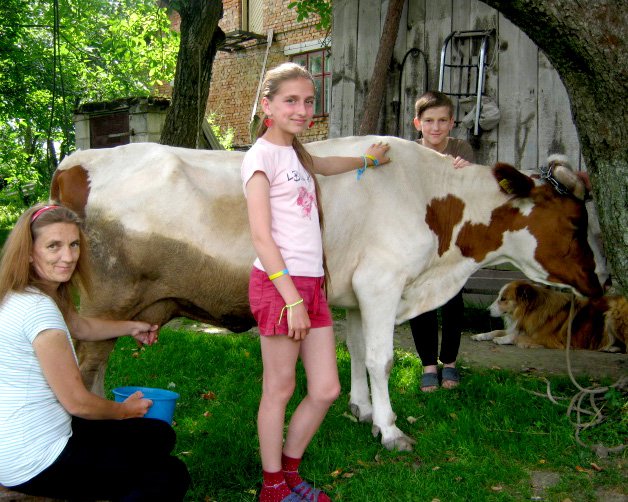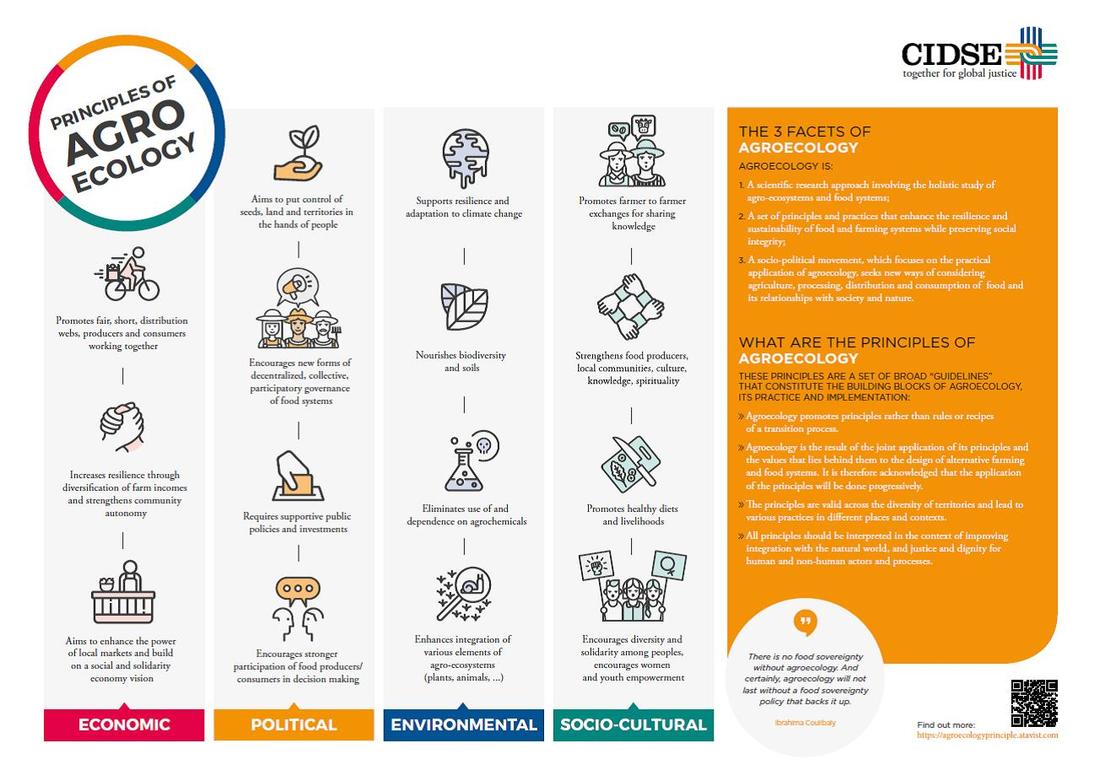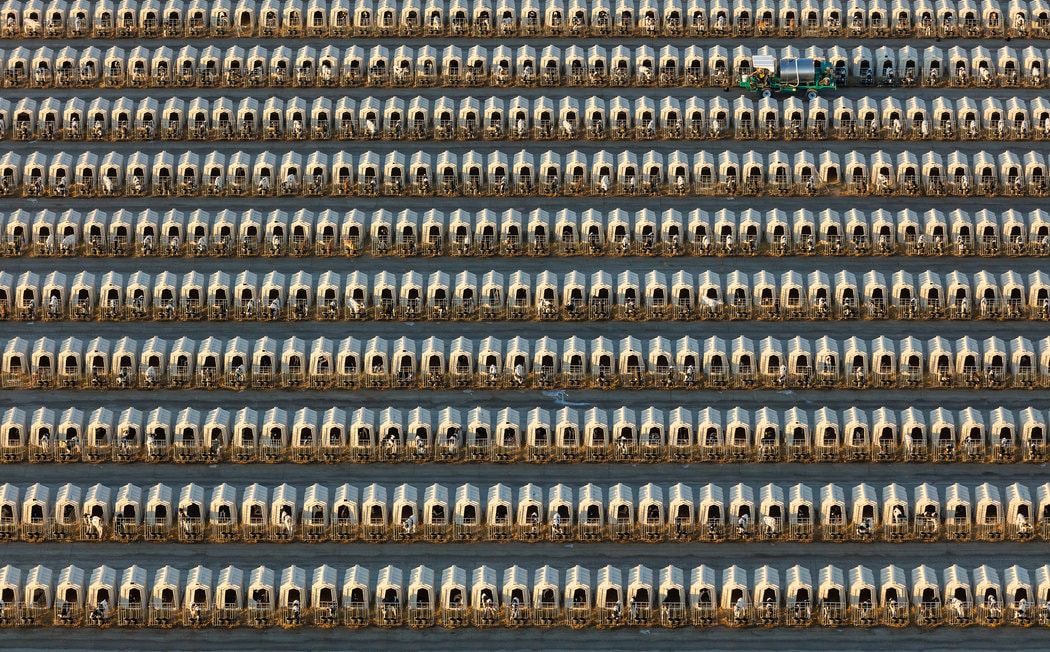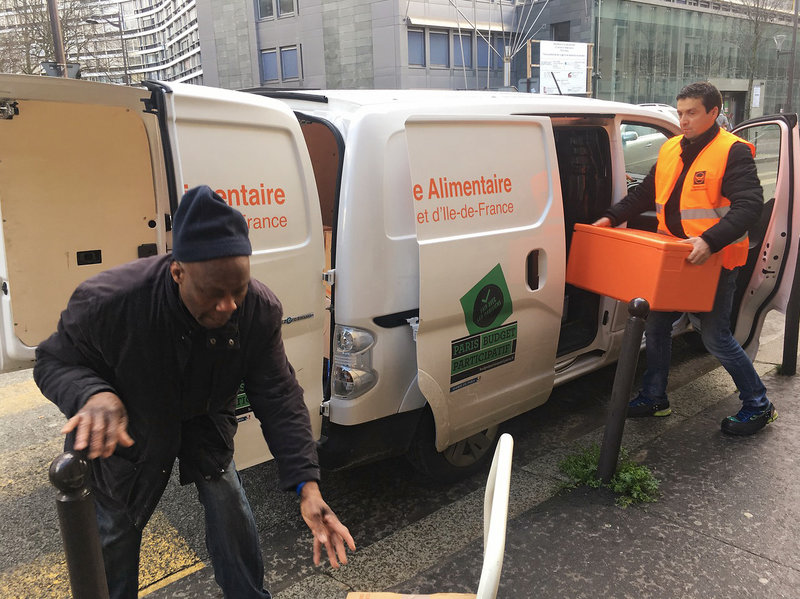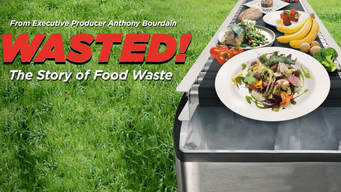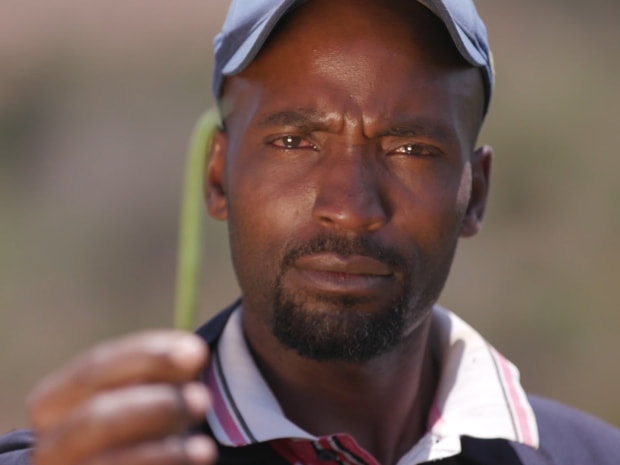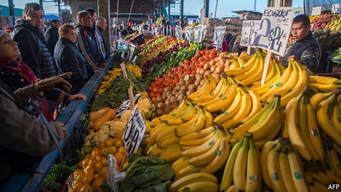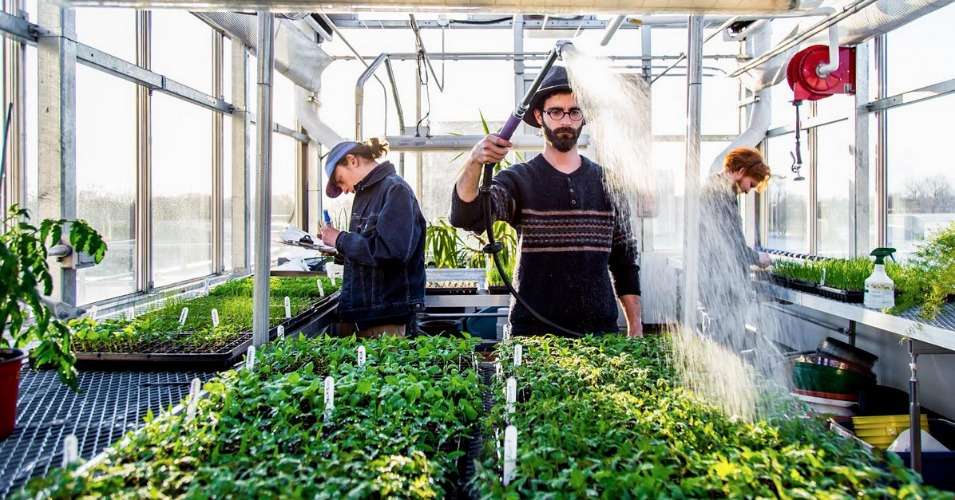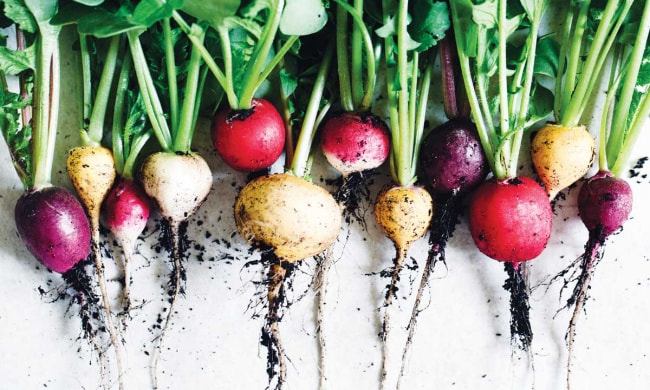|
Whether it is food for the poor, food that is safe, food not wasted all people have the moral right to have the food necessary to live healthy lives.
Greenhouse Gas Emissions per kilogram of food productDecember 17, 2022
Beef has about 100 times more greenhouse gas emissions than peas. Let's eat more peas! - https://twitter.com/WilliamJRipple
Empowering Haitian Farmers - Investment in Local Food SystemsJanuary 11, 2022 - Food Tank
Photo courtesy of Acceso
Throughout Acceso’s efforts to combat food insecurity, Giustra emphasizes the long-term importance of “creating economic opportunity in poor rural farming communities and investing in local food systems.” Acceso’s mission to develop a self-sustaining and resilient food system that is not reliant on food aid aligns directly with the role agriculture has played in Haitian culture.
READ MORE 122 Organizations Transforming Food Systems in 2022January 4, 2022 - Food Tank
The Economy of Francesco - Dr. Vandana Shiva
Make seafood traceability a priority for Canada
August 10, 2021 - Seachoice.org
Did you know that Canada still has no seafood traceability and labelling laws that are up to par for the twenty-first century? This means Canadians continue to eat in the dark, not knowing if the product they buy is what they think it is, whether it is sustainable, or even whether it came from legal fishing operations. Learn more and take action
Senegalese plant 'Green Wall' defence against desertAugust 9, 2021
How do diets need to change...April 11, 2021
India - Young Farmer teaches multi-layer farming to thousandsDecember 16, 2020
Akash Chaurasia is a marginal farmer from Bundelkhand, Madhya Pradesh. With low cost and innovative farming technique, Akash earns nearly 15 lakhs from his 2.5 acres (1ha) farm through multilayer cropping and other allied agriculture practices like producing manure (vermicompost)
This inspirational video demonstrates healthy food production and a way out of poverty. FVC US EPA Evaluation Finds Glyphosate Likely to Injure or Kill 93% of Endangered SpeciesDecember 8, 2020 - Sustainable Pulse
CERTIFICATION, VERIFICATION OR FABRICATION?
|
|
Environmental claims are now commonplace in supermarket counters and aisles – but not all claims are created equal. SeaChoice’s study is the first to investigate the rigour of seafood environmental claims in the Canadian retail marketplace. Greenwashing can create an unwarranted favourable image of a company and has the potential to shift consumer preferences toward products that are not environmentally beneficial or sustainably produced. Read more... |
Environmental Groups Enter Legal Challenge over Glyphosate Registration in Canada
November 10, 2020 - Sustainable Pulse
Environmental groups will be heading to the Federal Court of Appeal in support of a case related to the Pest Management Regulatory Agency’s (PMRA) decision to continue registration of the pesticide, glyphosate,... Represented by Ecojustice lawyers, the David Suzuki Foundation, Environmental Defence Canada and Friends of the Earth Canada will be appearing as interveners in Safe Food Matters Inc. v. Attorney General of Canada to uphold Canadians’ right to participate in decision-making about pesticides that impact human health and the environment...
...“The Pest Management Regulatory Agency’s actions on the re-registration of glyphosate in the face of environmental and health objections are yet another example of the regulator’s failure to apply the precautionary principle and ensure that it has rigorous, independent science when it reviews pesticide registrations. It’s time the PMRA start using the best available scientific research to guide decision-making about what we allow to be put in our food, the air, water and land that sustains life on this earth.” ...Read More
Note that Glyphosate Herbicides Now Banned or Restricted in 21 Countries Worldwide – Sustainable Pulse Research.
...“The Pest Management Regulatory Agency’s actions on the re-registration of glyphosate in the face of environmental and health objections are yet another example of the regulator’s failure to apply the precautionary principle and ensure that it has rigorous, independent science when it reviews pesticide registrations. It’s time the PMRA start using the best available scientific research to guide decision-making about what we allow to be put in our food, the air, water and land that sustains life on this earth.” ...Read More
Note that Glyphosate Herbicides Now Banned or Restricted in 21 Countries Worldwide – Sustainable Pulse Research.
The meat we eat is a pandemic risk, too
October 6, 2020 - Greenpeace Canada
Researchers are calling #FactoryFarms 'ticking time bombs' due to the risk they carry for both viral & bacterial pandemics. Moving away from industrialized farming towards sustainable food production must be central to a #GreenRecovery.
Seafood Progress
September 2, 2020 - Seachoice.org
Will you help hold your retailer accountable to its seafood commitment?
This week, SeaChoice released its third annual watchdog report on Canada’s eight major retailers’ sustainable seafood policies through Seafood Progress. Seafood Progress clearly shows the seafood sustainability goals your grocery store has set, which products they cover, and how much progress they are making. Learn more
This week, SeaChoice released its third annual watchdog report on Canada’s eight major retailers’ sustainable seafood policies through Seafood Progress. Seafood Progress clearly shows the seafood sustainability goals your grocery store has set, which products they cover, and how much progress they are making. Learn more
Mexico Announces Phase-Out and Ban on Glyphosate Herbicides
July 28, 2020 - Sustainable Pulse
|
Mexico’s Environment Ministry, has announced that glyphosate-based herbicides will be phased out of use in the country by 2024 to protect human health and the environment.
Read more... Glyphosate Herbicides Now Banned or Restricted in 21 Countries Worldwide – Sustainable Pulse Research |
Where is Canada regarding the use of glyphosate herbicides? We are apparently in the top 5 countries using this carcinogenic chemical along with the US, Brasil, Argentina and India. Recently India has acted to reduce its use.
ACTION: Tell your member of parliament to work to eliminate its use in Canada.
To help understand why glyphosate use is so prevalent read the posting below.
ACTION: Tell your member of parliament to work to eliminate its use in Canada.
To help understand why glyphosate use is so prevalent read the posting below.
Why “saying no to GMO” is good for the small farms and the environment
|
Current industrial agriculture aims to increase crop yields while reducing production costs – but the impacts of those goals can be detrimental to the environment, biodiversity, health and sustainability...
Monsanto was the world’s largest seed company, owning more than 80 percent of all GM seeds planted globally, until the company was bought by Bayer in 2018... |
Read more about how GMO seed and control affects small farmers around the world, and what can do about it. - READ MORE
Jane Goodall: humanity is finished if it fails to adapt after Covid-19
Primatologist calls for overhaul of food habits to prevent a future pandemic
June 2, 2020 - The Guardian
June 2, 2020 - The Guardian
|
Humanity will be “finished” if we fail to drastically change our food systems in response to the coronavirus pandemic and the climate crisis, the prominent naturalist Jane Goodall has warned...Intensive farming was also creating a reservoir of animal diseases that would spill over and hurt human society, said Goodall, one of the world’s foremost experts on chimpanzees and a longtime
|
conservation campaigner, speaking alongside two European commissioners at an online event held by the campaigning group Compassion in World Farming...
...People must move away from factory farming and stop destroying natural habitats as a matter of urgency, she said, because of the threat of diseases and of climate breakdown. Factory farming is linked to the rise of antibiotic resistant superbugs, which threaten human health. ...Read more
...People must move away from factory farming and stop destroying natural habitats as a matter of urgency, she said, because of the threat of diseases and of climate breakdown. Factory farming is linked to the rise of antibiotic resistant superbugs, which threaten human health. ...Read more
Resilient gardens for a changing climate
|
June 1, 2020, Queen of Green
Did you know that every kilogram of produce you grow yourself instead of buying at the store will cut greenhouse gas emissions by two kilograms? “No dig” gardening is also good for the climate and garden. Digging and turning the soil destroys soil structure and its living community. You might also want to test soil for contaminants and try intercropping. Then register for a webinar on how to create a resilient garden in the face of climate change!
|
Planting hope and harvesting joy!
May 20, 2020 - OFM JPIC - World Earth Day
Why not take advantage of this confinement period? Let’s make it an opportunity to reconnect with our Sister Mother Earth. We can also invest in the future by taking on new (and necessary) lifestyle changes. How about stepping up and growing your own food? ...READ MORE
Shorten Your Food Chain
April 28, 2020 - https://www.facebook.com/AgroResilience/
Seafood Progress?
|
October 1, 2019
|
In July they released year two updates for Seafood Progress – Canada’s online resource for tracking major food retailers’ sustainable seafood commitments and procurement. A year after SeaChoice first launched Seafood Progress and retailers claim they have progressed in several ways, but important work remains to ensure their purchasing power is leveraging healthy oceans.
|
They produced a series of news pieces that looks at each of the six steps that make up Seafood Progress in detail – highlighting trends, shortcomings and leaders in action: Commitments, Data Collection policies, Responsible Sourcing practices, Transparency, Education, and Supporting Improvements of the most unsustainable commodities sold in high volumes across Canada. Visit Seafood Progress to see how different retailer scored. Read the newsletter
Ask Health Canada to disallow glyphosate...
June 20, 2019
|
Glyphosate is the active chemical in Roundup and other herbicides commonly used in agriculture to kill weeds. It has long been suspected of being damaging to human health, and the health of soil, but in 2019 the evidence is staggering, and mounting. At this point, the United Nations has declared it a probable carcinogen, and for the first time in US history, Bayer, which now owns Monsanto, the
|
manufacturer of glyphosate, has been ordered to pay damages for glyphosate's contribution to a case of lymphoma. Bayer/Monsanto currently faces over 13,400 more similar cases.
READ MORE AND SIGN THE PETITION
READ MORE AND SIGN THE PETITION
Your questions about food and climate changed are answered
May 1, 2019 -- The New York Times
|
How to shop, eat and cook in a warming world. Can your diet have an effect on climate change? (Yes.) |
Food processors like Saputo and McCains are responsible for the most food waste in Canada
|
February 16, 2019 - SumOfUs
Canada wastes so much food that you might as well throw a quarter of your groceries away when you leave the supermarket. By far the worst culprits aren’t ordinary shoppers like us, but huge food processors like McCain’s and Saputo, the dairy giant behind Cracker Barrel and Neilson milk.
Food waste isn’t just about tossing perfectly good food. It wastes a huge amount of water and energy which we just can’t afford to waste. It pumps eye-watering levels of greenhouse gases into the atmosphere: the equivalent generated by 41 million cars driven on the road continuously for a year. |
Pastor’s surprising solution for food poverty leads to a boost in his congregation
February 10, 2019 - Aleteia
When Pastor Heber Brown III saw an increased number of his congregation with health issues as a direct result of their diet, he decided to take matters into his own hands — literally. The pastor of the Pleasant Hope Baptist Church in Baltimore came up with the idea of using the 1,500 square-foot piece of land surrounding the church to grow fresh produce, such as kale and summer squash…. The church-grown vegetables were then sold to members of his church at more affordable prices than in the local shops. Although the crops produce an impressive 1,100 pounds of fresh fruit and vegetables, Brown came up with the idea of also including local farmers markets into his healthy eating incentive.
…“We saw attendance bump up in our worship, we saw a great energy … and it went so [well] here, that I wondered what would happen if we could spread it through other churches and create a network of churches that do the same thing.” READ MORE
…“We saw attendance bump up in our worship, we saw a great energy … and it went so [well] here, that I wondered what would happen if we could spread it through other churches and create a network of churches that do the same thing.” READ MORE
Fighting to end food waste in Canada
October 21, 2018 - Change.org
Costco, Loblaw's, Safeway and Sobey's mislabel fish
September 30, 2018 - SumOfUs
|
When you buy white tuna or butterfish in the grocery store, you could actually be purchasing a fish dubbed “the laxative of the sea” for its devastating effects on the digestive system including diarrhea, nausea, vomiting and abdominal pain. Escolar could make you sick for days -- and you'd have absolutely no way of knowing which fish you'd actually bought.
|
Almost a quarter of all fish in from Costco, Loblaw's, Safeway and Sobey's and all other stores in Canada are mislabelled according to a just-released study. But that's not the worst of it: 100% of all snapper, butterfish and yellowtail was mislabelled and fraudulent.
Protect consumers' health and ensure boat-to-source traceability for all seafood products in Canada.
READ MORE and tell CFIA to stop seafood fraud.
Protect consumers' health and ensure boat-to-source traceability for all seafood products in Canada.
READ MORE and tell CFIA to stop seafood fraud.
CBC - Canadians get creative in solving food waste problem
September 3, 2018
BC News spoke to several businesses to see how they're developing creative solutions and technology to reduce the tons of food that end up in landfills.
This could easily be a topic for a fraternity meeting encouraging discussion. DOWNLOAD pdf file
The Dizzying Grandeur of 21st-Century Agriculture
New Your Times
Our industrialized food system nourishes more people, at lower cost, than any comparable system in history. It also exerts a terrifyingly massive influence on our health and our environment. Photographer George Steinmetz spent nearly a year traveling the country to capture that system, in all its scope, grandeur and dizzying scale. His photographs are all the more remarkable for the fact that so few large food producers are willing to open themselves to this sort of public view.
SEE THE PHOTO STORY
SEE THE PHOTO STORY
This Quebec Small Farmer is proving that it's possible!
My mission is to inspire, educate and empower people to work together towards multiplying the number of small ecological farms all over the world. This I believe, is how we can replace the poison and destruction of industrial agriculture with a food system based in nature and community. Food grown with care, by and for people who care. — JM Fortier
Also see their short 2:15 min video - http://www.themarketgardener.com/film
Also see their short 2:15 min video - http://www.themarketgardener.com/film
Creation care through food
A Rocha began its foray into sustainable agriculture over ten years ago through our Community Shared Agriculture (CSA) project in Surrey, BC. Building on our success in organic farming, we’re equipping community gardeners across Canada to grow food for their less-fortunate neighbours through our Community Garden Network. We’re turning schoolyards into farmyards in inner-city neighbourhoods through our Farm to Families project. And we’re bringing hope and health to newcomers to Canada through our Earth to Table project in Hamilton, ON. ...LEARN MORE
French Food Waste Law Changing How Grocery Stores Approach Excess Food
April 2, 2018 - NPR
|
(In France)... giving leftover food to charity is no longer just an act of goodwill. It's a requirement under a 2016 law that bans grocery stores from throwing away edible food.
Stores can be fined $4,500 for each infraction. Djerbrani checks food donations from a French grocery store before driving it across town to a church, which will distribute it to poor families. Read More... |
Food waste is a global problem. In developing countries, food spoils at the production stage. Well-off nations throw it away at the consumption stage. Grocery stores are responsible for a lot of that waste. France is trying to change that with its 2-year-old law.
Comment - FVC: Canada could benefit from a similar law. Make this idea a topic of discussion in your fraternity and community; tell your government representative.
Comment - FVC: Canada could benefit from a similar law. Make this idea a topic of discussion in your fraternity and community; tell your government representative.
Wasted! The Story of Food Waste
March 19, 2018 - CBC - The Passionate Eye
|
What if every time you opened your wallet, a third of your cash fell out – and you did nothing about it? Consider the fact that one-third of the food grown annually for human consumption is never eaten – for one reason or another, it ends up in the garbage. In the U.S., that’s $218 billion – or 1.3 billion tons – of food annually. Yet at the same time, 800 million people around the globe are starving. It’s a problem – but one with no shortage of solutions.
|
Watch any of 3 short videos about 1 minute long or the full documentary. It will change your attitude about our food and its wastage. We can spread this important message to our families, friends, communities, towns, cities.... - it's a powerful message and worth the time to watch.- FVC
Confronting the perfect storm - how to feed the future
|
Nov. 16, 2017 - CBC - Ideas
Douglas Rasugu farms French beans in Kenya. Up to 60 per cent of his crop goes to waste because it doesn't meet aesthetic standards for the international market. Footage gathered by Joseph Mwihia, edited by Sinisa Jolic
|
We're facing what could be a devastating crisis—how to feed ourselves without destroying the ecosystems we depend on. We already produce enough food to feed everyone on the planet. Yet 800 million people are undernourished, while another 2 billion are overweight or obese. And at the same time, almost one third of the food we produce goes to waste. In partnership with the Arrell Food Institute at the University of Guelph we seek out creative solutions to a looming disaster.
This is worthwhile listen. Learn what we in the west can do to help. - George Guimond, editor
|
Argentina's vegan Monday
Some countries are considering ways to get people to stop eating meat
|
Nov. 1, 2017 - The Economist
The introduction of meatless Mondays to the Casa Rosada adds Argentina to the list of countries investigating ways to limit meat consumption. The countries of Latin America and the Caribbean are in the middle of an obesity crisis. The UN’s Food and Agriculture Organisation estimates that a majority of people are overweight in all but three countries of the region. Argentina has particular grounds for
|
concern. The rate of obesity among its boys is the highest in Latin America, and among girls it is the third-highest. This has been linked to various causes, including excessive eating of beef. Daily consumption per person in Argentina—150g—is over double the recommended amount.
And health concerns are not the only ones cited by those looking to reduce meat consumption. The livestock sector accounts for 15% of the world’s greenhouse-gas emissions–the equivalent of all the vehicles in the world. Animal pastures have been blamed for 90% of deforestation in the Brazilian Amazon. Beef is a particularly voracious user of water, with 15,000 litres of water needed to produce a kilogram of the meat. READ MORE
And health concerns are not the only ones cited by those looking to reduce meat consumption. The livestock sector accounts for 15% of the world’s greenhouse-gas emissions–the equivalent of all the vehicles in the world. Animal pastures have been blamed for 90% of deforestation in the Brazilian Amazon. Beef is a particularly voracious user of water, with 15,000 litres of water needed to produce a kilogram of the meat. READ MORE
Food Insecurity and Agribusiness - there's a better way
What we need is a profound and radical transformation, or dare we say, conversion of the world food system. Around the world, people are migrating within and across borders, and for many of them, hunger and food insecurity are driving them. We know that climate change, conflict, and political instability are adversely affecting food security, but if communities are still facing hunger today it is because of the flawed and damaging way in which we produce and distribute food around the world. Indeed, at the heart of the problem, and perhaps the solution, is our very relationship to food and the land it grows on.
Food insecurity is largely driven by a food system that is highly controlled by agribusiness, believed to be the only model capable of producing large volumes of food – and waste. But more food is not the same as less hunger!
READ MORE & Take Action
Food insecurity is largely driven by a food system that is highly controlled by agribusiness, believed to be the only model capable of producing large volumes of food – and waste. But more food is not the same as less hunger!
READ MORE & Take Action
Wangari Maathai & The Green Belt Movement
October 18, 2017
Wangari Maathai is a Kenyan environmentalist and political activist. In the 1970s, Maathai founded the Green Belt Movement, an environmental NGO focused on environmental conservation and women's rights. In 2004, she became the first African woman to receive the Nobel Peace Prize for her contributions to sustainable development, democracy, and peace.
The Green Belt Movement (http://greenbeltmovement.org) organizes rural women in Kenya to plant trees, an effort that combats deforestation while generating income for the community and promoting empowerment for women. Since Maathai founded the Movement, over 40 million trees have been planted and over 30,000 women have been trained in forestry, food processing, beekeeping, and other sustainable, income-generating activities.
The Green Belt Movement (http://greenbeltmovement.org) organizes rural women in Kenya to plant trees, an effort that combats deforestation while generating income for the community and promoting empowerment for women. Since Maathai founded the Movement, over 40 million trees have been planted and over 30,000 women have been trained in forestry, food processing, beekeeping, and other sustainable, income-generating activities.
September 26, 2017 - Yes! Magazine
How to Feed Ourselves in a Time of Climate Crisis
Here are 13 of the best ideas for a just and sustainable food system, from saving seeds to curbing food waste.
Changing the food system is the most important thing humans can do to fix our broken carbon cycles. Meanwhile, food security is all about adaptation when you’re dealing with crazy weather and shifting growing zones. How can a world of 7 billion—and growing—feed itself? Here are 13 of the best ideas for a just and sustainable food system. Learn More
TRANSLATE THIS PAGE
